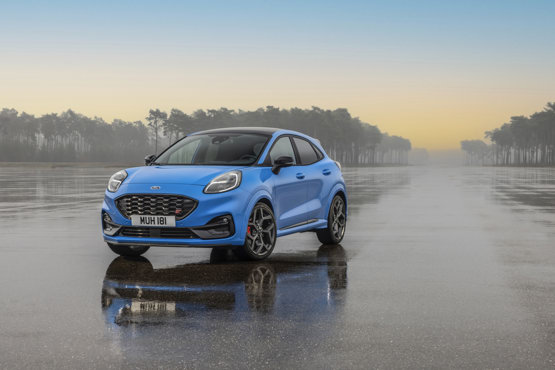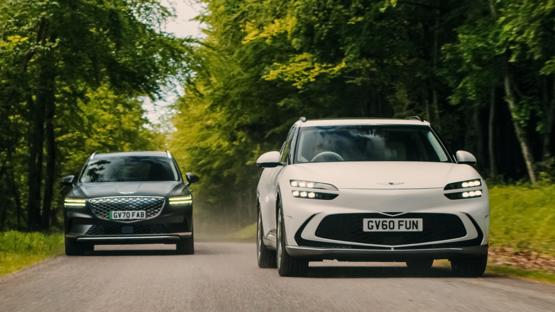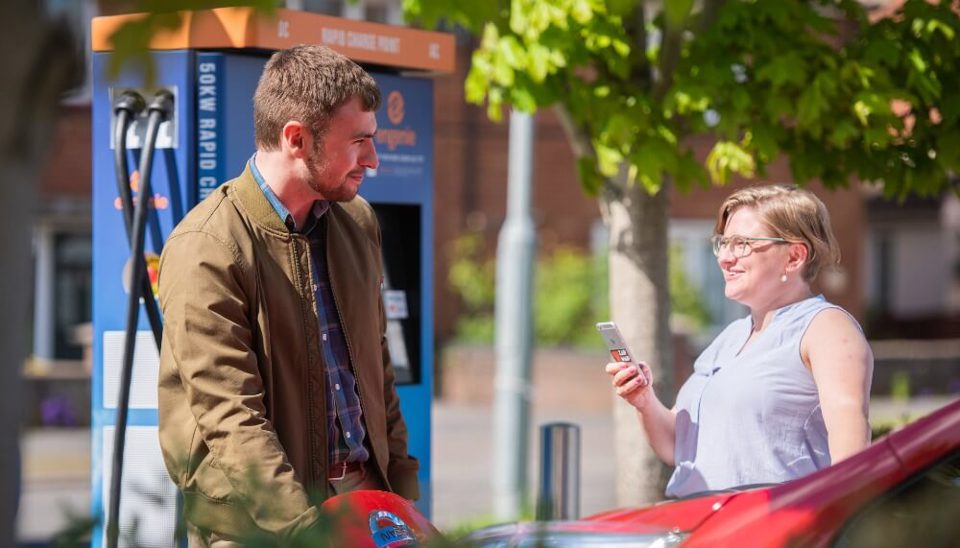The new car retail registrations increased by 14.8% in June, but fleets are continuing to lead the market, according to the latest data by Society of Motor Manufacturers and Traders (SMMT).
Fleet registrations increased by 37.9% and the overall market was up 25.8% in June to 177,266 units.
Deliveries of petrol cars increased 22.7%, to remain the most popular powertrain, while those of hybrids (HEVs) and plug-in hybrids (PHEVs) also rose, by 40.1% and 65.5% respectively. Diesel registrations were down -13.5%.
The new car retail registrations increased by 14.8% in June, but fleets are continuing to lead the market, according to the latest data by Society of Motor Manufacturers and Traders (SMMT).
Fleet registrations increased by 37.9% and the overall market was up 25.8% in June to 177,266 units.
Deliveries of petrol cars increased 22.7%, to remain the most popular powertrain, while those of hybrids (HEVs) and plug-in hybrids (PHEVs) also rose, by 40.1% and 65.5% respectively. Diesel registrations were down -13.5%.
Battery electric vehicle (BEV) registrations, meanwhile, grew again, with the segment up 39.4% as 31,700 buyers chose to get behind the wheel of a zero emission car – 17.9% of the total market.
It is business and fleets, however, rather than private buyers, that continue to drive this growth, thanks to the attractive fiscal incentives on offer.
Although manufacturers are offering a range of BEV deals for private buyers, including flexible subscription models and attractive finance rates, the SMMT believes more could be done by other stakeholders to make purchasing even more compelling.
MORE: New car registration figures from the SMMT
VAT equity on public charging
Given that recharging an EV at home can offer a 60-70% cost per mile saving compared with refuelling a petrol or diesel vehicle, the industry is calling for a cut in VAT on public charging to help quicken uptake.
Drivers able to charge at home pay 5% VAT to power up their EV, compared with 20% for those without access to a driveway or designated private parking space who are reliant on the public network.
The SMMT said VAT equity would make switching to an EV feasible for more people regardless of home ownership or property status.
Mike Hawes, SMMT chief executive, said: “Most EV owners enjoy the convenience and cost saving of charging at home but those that do not have a driveway or designated parking space must pay four times as much in tax for the same amount of energy.
“This is unfair and risks delaying greater uptake, so cutting VAT on public EV charging will help make owning an EV fairer and attractive to even more people.”
Sue Robinson, National Franchised Dealers Association (NFDA) chief executive, said the first half of the year has been strong, with registrations up 18.4% compared to the first six months of 2022.
However, Robinson said supply side constraints are still prevalent for certain manufacturers, but on the whole, retailers are noticing consistent improvement for showroom stock and wait times are gradually reducing.
She said: "Ongoing economic turbulence, including rising interest rates and inflation is impacting consumer spending power.
"Price parity between EV and ICE is still far too wide which has the potential to become a problem on the road to 2030.
"It is imperative Government does not lose focus on its climate commitments and introduces more financial incentives for the general public to support affordability of EVs and enabling an efficient and fully functional charging infrastructure."
Jamie Hamilton, automotive partner and head of electric vehicles at Deloitte said that while the first half of the year has been positive, the industry faces "an uphill challenge for the rest of the year around affordability".
Rising interest rates are impacting the cost and availability of car loans for consumers.
Hamilton added: "Against the continued backdrop of the cost-of-living crisis, the perceived high cost of battery electric vehicles (BEVs) could also have an impact on demand.
"However the increasing choice and availability of models could help consumers make the switch to electric.”
Ford Puma tops half-year registrations table

| Half year 2023 best sellers | Units |
|---|---|
| Ford Puma | 22,765 |
| Vauxhall Corsa | 21,208 |
| Nissan Qashqai | 19,983 |
| Tesla Model Y | 19,551 |
| Hyundai Tucson | 18,678 |
| Nissan Juke | 18,380 |
| Kia Sportage | 18,057 |
| Mini | 15,359 |
| Ford Fiesta | 15,359 |
| Vauxhall Mokka | 14,996 |
Top 10 brands with biggest growth in HY 2023

Genesis led growth in the first half of the year, although the brand is accelerating from a standing start in the UK. MG and Skoda are particular stand outs due to the volume and market share both are carving out in the UK new car market, with the Chinese-owned MG securing over 3% market share in the first half of the year.
| Marque | HY 2023 | % market share | HY 2022 | % market charge | % change |
|---|---|---|---|---|---|
| Genesis | 811 | 0.09 | 299 | 0.04 | 171.24 |
| Polestar | 6,864 | 0.72 | 2,828 | 0.35 | 142.72 |
| Cupra | 11,382 | 1.20 | 5,058 | 0.63 | 125.03 |
| Subaru | 1,095 | 0.12 | 528 | 0.07 | 107.39 |
| MG | 39,624 | 4.17 | 25,073 | 3.13 | 58.03 |
| Skoda | 34,359 | 3.62 | 22,805 | 2.84 | 50.66 |
| Porsche | 12,330 | 1.30 | 8,372 | 1.04 | 47.28 |
| Nissan | 45,309 | 4.77 | 31,296 | 3.90 | 44.78 |
| Volkswagen | 79,621 | 8.38 | 55,894 | 6.97 | 42.45 |
| Mazda | 16,106 | 1.70 | 11,619 | 1.45 | 38.62 |
Bottom 10 brands for growth in HY 2023
From a volume perspective, Mercedes-Benz and Peugeot's performance stands out with drops of over 5% in the first half of 2023.
Mercedes-Benz has switched to a new way of working with the agency model in January this year and some may be quick to point to this as a factor in the reduction in volume. However, agency will be just one of various factors at play.
Vertu chief executive Robert Forrester told AM in May that it’s not in the interest of car manufacturers to “put a bomb under the sector” with the move to new agency models.
He said: “Agency does add certain complexities when looking at the mix of different systems across our businesses, but it’s something we’ll deal with.
“It’s not in the interest of OEMs to put a bomb under the sector and to destroy their retail networks. It’s a big change for the OEMs and they need to get the skills and the experience to support the move.
“The biggest question on the agency model is still whether retailers are going to make money.
“You’re not going to judge something after a few months and so we need to see where things are after more time.”
| Marque | HY 2023 | % market share | HY 2022 | % market charge | % change |
|---|---|---|---|---|---|
| Smart | 178 | 0.02 | 821 | 0.10 | -78.32 |
| Abarth | 294 | 0.03 | 986 | 0.12 | -70.18 |
| Fiat | 9,381 | 0.99 | 11,393 | 1.42 | -17.66 |
| Bentley | 779 | 0.08 | 897 | 0.11 | -13.15 |
| Alfa Romeo | 704 | 0.07 | 784 | 0.10 | -10.20 |
| Mercedes-Benz | 42,780 | 4.50 | 45,818 | 5.71 | -6.63 |
| Peugeot | 30,381 | 3.20 | 31,996 | 3.99 | -5.05 |
| BMW | 52,275 | 5.50 | 53,517 | 6.67 | -2.32 |
| Alpine | 173 | 0.02 | 171 | 0.02 | 1.17 |
| Jaguar | 6,777 | 0.71 | 6,691 | 0.83 | 1.29 |
Login to continue reading
Or register with AM-online to keep up to date with the latest UK automotive retail industry news and insight.

















Login to comment
Comments
No comments have been made yet.